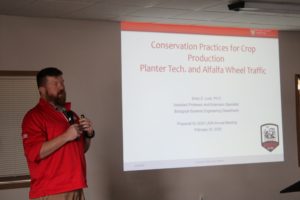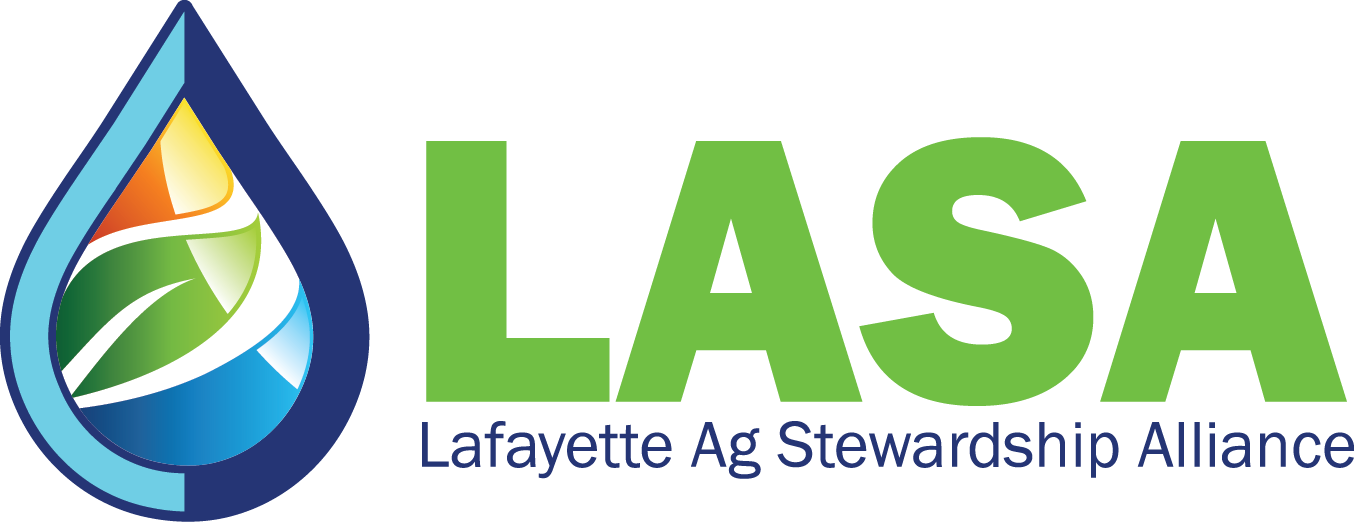By Mary Hookham For Lafayette Ag Stewardship Alliance
Investing in agricultural technology to improve water quality is a key factor in the successes Lafayette Ag Stewardship Alliance members have enjoyed during the past few years.
The farmer-led watershed conservation group in southwestern Wisconsin is identifying and promoting farming practices that demonstrate continuous improvement in environmental sustainability. Experimenting with technology is a big part of those efforts.
 “Investments in technology are required to make these practices work,” said Dr. Brian Luck, assistant professor and state extension specialist with the University of Wisconsin-Madison Biological Systems Engineering Department.
“Investments in technology are required to make these practices work,” said Dr. Brian Luck, assistant professor and state extension specialist with the University of Wisconsin-Madison Biological Systems Engineering Department.
Luck was a presenter at the alliance’s annual meeting Feb. 25.
No-till farming is quickly gaining popularity in Lafayette County as more farmers see the benefits of the practice in their crop operations. It’s known to work well in sandy, dry soils and on sloping terrains.
Luck and his team have done extensive studies in various counties in Wisconsin to find out how best to set up planters for no-tilling. His studies on planter closing wheels have yielded promising results for better plant emergence, but it all depends on soil quality, he said.
“What I would recommend is to try some aftermarket closing wheels,” he said. “You’re talking about $200 per wheel, so go get one, put it on a row or two and try it in your field. Don’t buy a whole bunch; instead give it a shot in the conditions you’re running and make sure it performs the way you want it to.”
It is crucial to planting success for farmers to go out to their fields and assess soil quality, type and moisture to know how to properly set up a planter, Luck said. Making adjustments on the fly will be easier if farmers are familiar with their soil.
“Tillage is a tool and we need to use it,” he said. “This is where the precision ag side of things comes in. We need to ask ourselves if we can we identify areas of the field that have varying soil types.”
